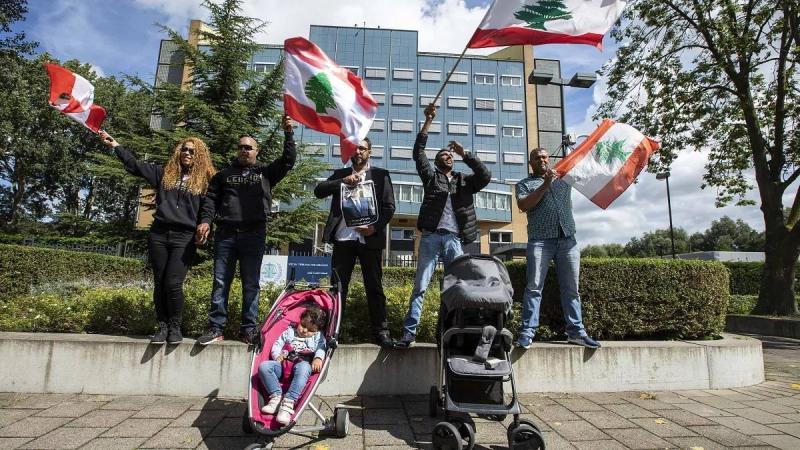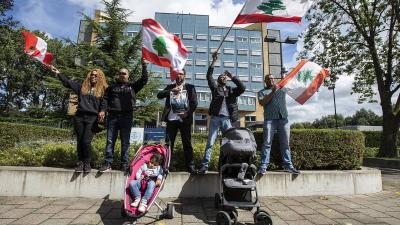The Lebanese Government: "Do not sleep among the graves of the International Criminal Court, lest you witness horrifying dreams."
The Lebanese Cabinet issued a decision on August 28 regarding its previous decision from April 26, 2024, which mandated the Ministry of Foreign Affairs to submit a notification to the International Criminal Court's registry under paragraph 3 of Article 12 of its statute, accepting its jurisdiction to investigate and prosecute all crimes committed on Lebanese territory since October 7, 2023, that fall within its jurisdiction. This decision followed a report presented to the Cabinet by Minister of Information Fred Makari, based on a request from Reuters, concerning the martyrdom of the photographer Issam Abdullah, suggesting the notification to activate the trial at the ICC, or in other words, "to facilitate access to justice" in this case, for which Israel was responsible.
In summary, Lebanon has retracted its decision regarding cooperation with the International Criminal Court. According to the court's statute, countries that do not engage with or recognize the court are not obliged to execute its decisions or judicial orders, or take any action in the event they are subjected to violations.
It is noteworthy that this court has issued arrest warrants for Israeli Prime Minister Benjamin Netanyahu and his Minister of Defense, accusing them of committing war crimes against Palestinians in Gaza. Instead of encouraging Lebanon to participate in the court, this decision indicates a withdrawal from collaboration with it.
Why did Lebanon take this shocking and surprising step? It had relied on the condemnation of Israel for the killing of the Reuters photographer, Issam Abdullah, whose case has been strongly indicted in reports and investigations against Israel? Or other crimes committed in Lebanon or that could be committed in the future?
The minister who requested the withdrawal from dealing with the court is the Minister of Youth and Sports, George Kallas, who is close to the Speaker of Parliament Nabih Berri and Hezbollah. This action suggests that the "national duo" had no desire to cooperate with the court for various reasons.
The first reason is that the court has issued arrest warrants for Israeli and Hamas leaders, meaning that Lebanon, should it continue cooperating with the court, would be obligated to arrest Hamas leaders if they visited or resided in Lebanon.
It is known that the circumstances of the "Unity of Fronts" phase currently in effect entails visits by certain Hamas leaders to Lebanon or its regions due to the ongoing confrontation in Gaza, placing Lebanese authorities under future pressures and demands to adhere to their commitments with the court.
Moreover, the war in Gaza does not appear to be stopping soon, suggesting that developments will not remain limited to one side or defined borders. Given that the war is ongoing, there have been whispers about the possibility of the court issuing decisions against Hezbollah leaders, which may escalate under pressure from certain Western lobbies opposed to the party and aligned with Zionist Israeli forces.
From this, the prevailing belief is that the government, which decided to recognize the ICC to hold Israel accountable for the killing of photographer Abdullah and potential other crimes, might itself be used by various international entities to pursue Hezbollah or allied parties in the future under pretexts not currently apparent.
As is well-known, the party does not generally feel comfortable and has not previously shown fondness for international courts in multiple occasions and cases. Thus, it was likely not pleased with Lebanon's recent agreement to pursue Israel regarding the killing of the Lebanese photographer at Reuters, as it may also impact Hezbollah, given its position in the ongoing military conflicts.
The surprise element came from the suggestion of the Minister of Youth and Sports, who managed to pass his request among the "players" in the cabinet without anyone noticing, which allowed for a successful maneuver against the International Criminal Court, delivering a well-placed corner kick that shook the court and Lebanon’s reputation.
As for the referee or goalkeeper, the Prime Minister, he contented himself with allowing the offside play, without blowing any whistles, and without raising any cards—red, yellow, or green—acting on the proverbial saying "stay away from harm and sing to it," and "do not sleep among the graves of the International Criminal Court, lest you witness horrifying dreams." It remains unknown how those previously concerned about it in the case of the assassination of former Prime Minister Rafik Hariri, and other complex issues managed to distance themselves from it.




